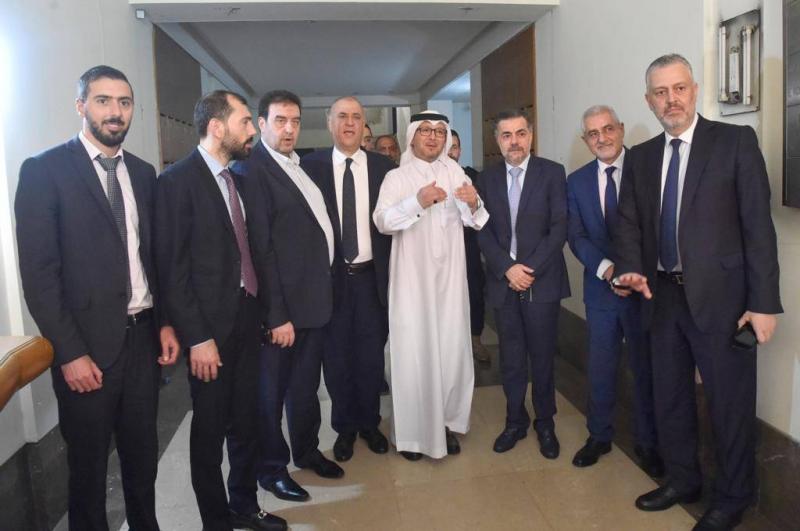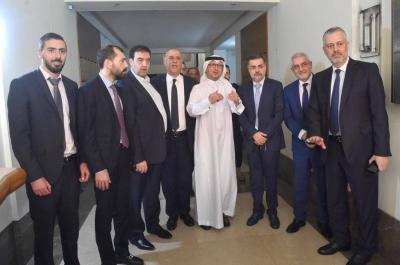After the morning meeting that brought together Saudi Ambassador to Lebanon Walid Bukhari and former minister Sleiman Franjieh, Bukhari met in the evening on Thursday in Sayfiyah with the deputies of the "National Moderation Bloc," which includes deputies Walid bahraini, Mohammed Suleiman, Saji Attia, Ahmad Rustum, Abdulaziz Al-Samad, Ahmad Al-Khair, and the bloc's secretary, former deputy Hadi Habesh.
Following the meeting, the bloc emphasized the necessity of expediting the election of a president and exercising the constitutional right of all political blocs to elect a president and choose the name they see fit.
In a statement, they declared, "As the National Moderation Bloc, we commit to not boycotting any session for the election of the president of the republic, and we will support any candidate who adheres to the National Accord Document and the Taif Agreement and preserves relations with Arab countries and the Gulf, foremost among them the Kingdom of Saudi Arabia, and is open to all countries in a way that serves Lebanon and the Lebanese."
Meeting sources indicated to "Wardna" that the atmosphere of the meeting reflected a firm Arab inclination towards electing a president for the republic, and that Bukhari described his meeting with Franjieh as good, without delving into details.
According to bloc sources, Ambassador Bukhari reflected a climate of consensus, and his meetings suggest there is no "veto" on any personality; hence, the matter of electing a president is left to local factions to choose whom they wish without obstruction and in a democratic atmosphere.
The same sources also mentioned that the Kingdom is keen on filling the vacancy, as its continuation is detrimental to Lebanon's future, and that Riyadh's dealings with the next president will be based on the stances that will issue from him.
In exclusive information for "Wardna," Lebanese officials were informed that they have a deadline of weeks, ending at the end of June, to elect a president. If the vacuum continues, there will be actions taken by the Arab and international community, which may reach the point of imposing sanctions, especially against those obstructing. Furthermore, international openness and major regional settlements could assist the Lebanese in electing a president and finding solutions to the internal barriers delaying this crucial process.




